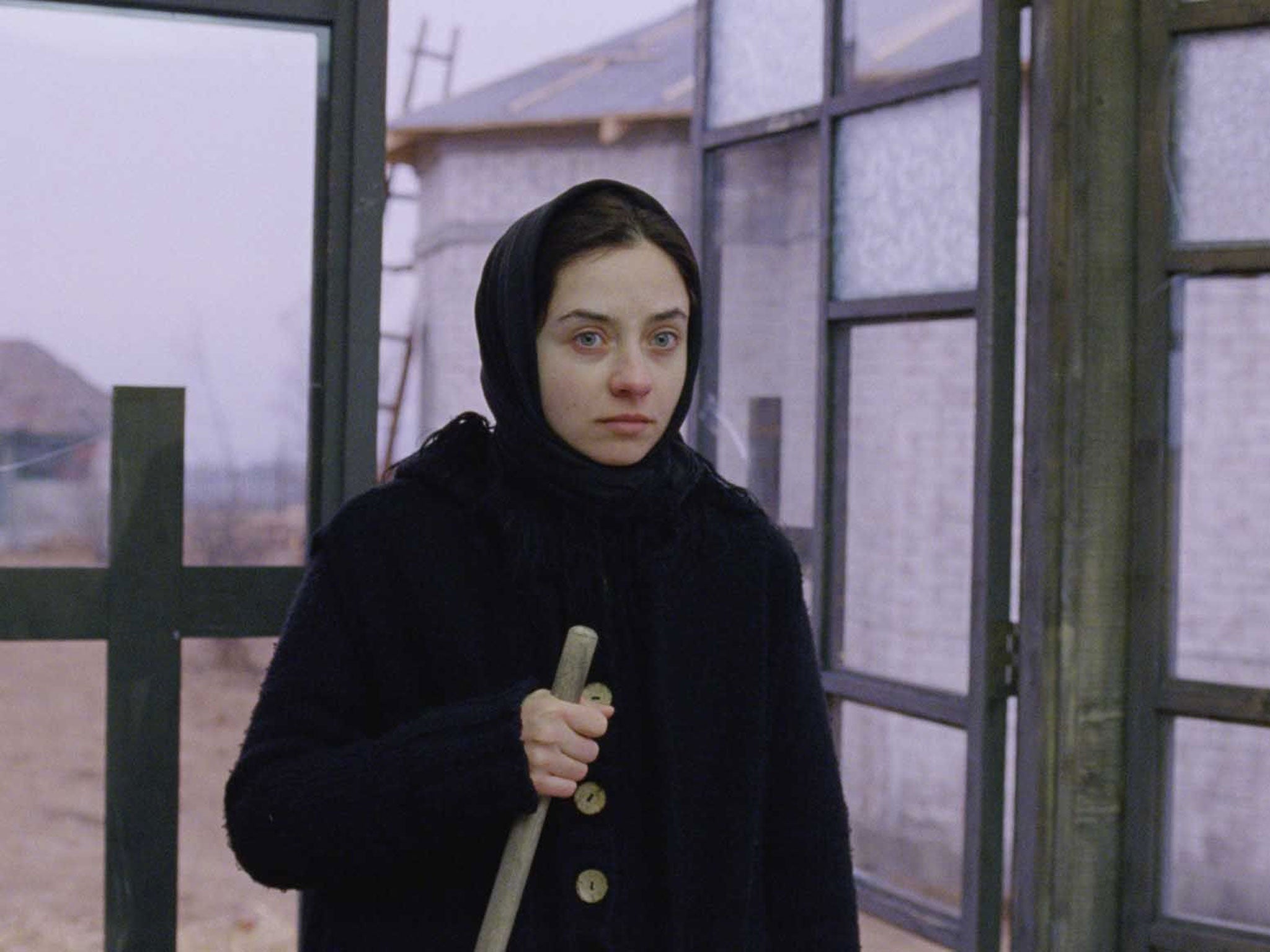Jonathan Romney on Beyond the Hills: A nuns' story, but no sound of music
A stark, disturbing tale set in a Romanian convent proves surprisingly rewarding

When the then-unknown Cristian Mungiu made his surprise conquest of Cannes in 2007, with Palme d'Or winner 4 Months, 3 Weeks and 2 Days, we critics had a job touting his film as the hottest ticket in town. Referring to it in shorthand as "the Romanian abortion film" didn't help.
I can't see things being easier with Mungiu's Beyond the Hills. All credit to its distributors for not trying the hard sell and marketing it as "the Romanian Lesbian Nun Exorcism Movie" – though technically, that wouldn't be untrue.
Stark as it was, 4 Months ..., set in the blighted Ceausescu era, told a compelling, emotionally involving story of two women's comradeship and determination. Beyond the Hills is similarly rewarding, although its spare, nuanced narrative doesn't offer its rewards on a plate.
The film is based on real events in Romania in 2005. It begins with the reunion of two young women, Alina (Cristina Flutur) and Voichita (Cosmina Stratan). The two were room-mates – and, it's implied, lovers – at an orphanage, where the older, tougher Alina protected Voichita against various abuses. Recently living in Germany, Alina has come home to fetch her friend, hoping that she'll join her in working abroad. But Voichita is now a novice in an Orthodox convent run by a priest whom she calls "Papa" (Valeriu Andriuta).
Visiting the austere hillside community, Alina is made welcome by the nuns; but before long, relations are fraught. After rebelling against Papa's rule, Alina is delivered by the nuns to a local hospital, bound and gagged. But soon she's back at the convent and apparently bowing to its severe Orthodoxy. In one of a handful of openly comic moments, Alina – having agreed to make a confession – is talked through a checklist of 464 possible sins. Mercifully, Mungiu only takes us up to No 21.
It's not long before Alina is rebelling again – and it's an act of literal iconoclasm that seals her fate in Mungiu's disturbing final chapter.
Mungiu's script is ruthlessly to the point, while accommodating several pertinent digressions. The drama steps away from the convent to visit, in turn, a police station, where bored officers gossip about local notables; the home of Alina's baffled former foster parents; and the local orphanage, whose inmates seem desperate to escape by any means necessary. It's suggested that for many young women in rural Romania, the options are so limited that joining orders such as Papa's is the only feasible way to find a roof and companionship.
Like 4 Months..., Beyond the Hills offers more in terms of narrative and emotional weight than conventional visual pleasure – though if you're partial to chilly realist starkness, you'll be in clover. Oleg Mutu's widescreen photography drapes the frame with blasted, snowy hillscapes, or frieze-like compositions of the sallow-faced nuns in their weird little pillbox hats.
But the psychological depth is considerable. Relatively little is said between the female leads, yet their faces speak eloquently – Alina with the self-preserving silence of a hard-boiled survivor, and Voichita, wide-eyed and hunched in a cocoon-like coat, hinting at a bottomless fear of the world. Both Flutur and Stratan are strikingly expressive – and, given the rigour of the roles, fearless – and fully deserve their shared Best Actress prize in Cannes.

Watch Apple TV+ free for 7 day
New subscribers only. £8.99/mo. after free trial. Plan auto-renews until cancelled.
ADVERTISEMENT. If you sign up to this service we will earn commission. This revenue helps to fund journalism across The Independent.

Watch Apple TV+ free for 7 day
New subscribers only. £8.99/mo. after free trial. Plan auto-renews until cancelled.
ADVERTISEMENT. If you sign up to this service we will earn commission. This revenue helps to fund journalism across The Independent.
The film doesn't hit the expected notes in presenting its picture of ignorance and intolerance. Papa, whom you might expect to be the embodiment of patriarchal brutality, is given a surprising soft edge. His world view is built on a rhetoric of mystification and absolutism – yet he's gently spoken, and seemingly compassionate even when casting judgment.
But it's only towards the end that sanity is heard, too late – from a doctor who reads the nuns the riot act, and from a weary policeman who sighs, in the enigmatic closing shot, "What a state the world is in …."
From the very first image, as Voichita squeezes through a railway station crowd, Beyond The Hills is deeply claustrophobic, and you'll want to take a deep breath when it's over. But you'll have been somewhere you could never have imagined otherwise – not just to an obscure corner of religious Europe, but to murky, painful regions of the human soul.
Join our commenting forum
Join thought-provoking conversations, follow other Independent readers and see their replies
Comments